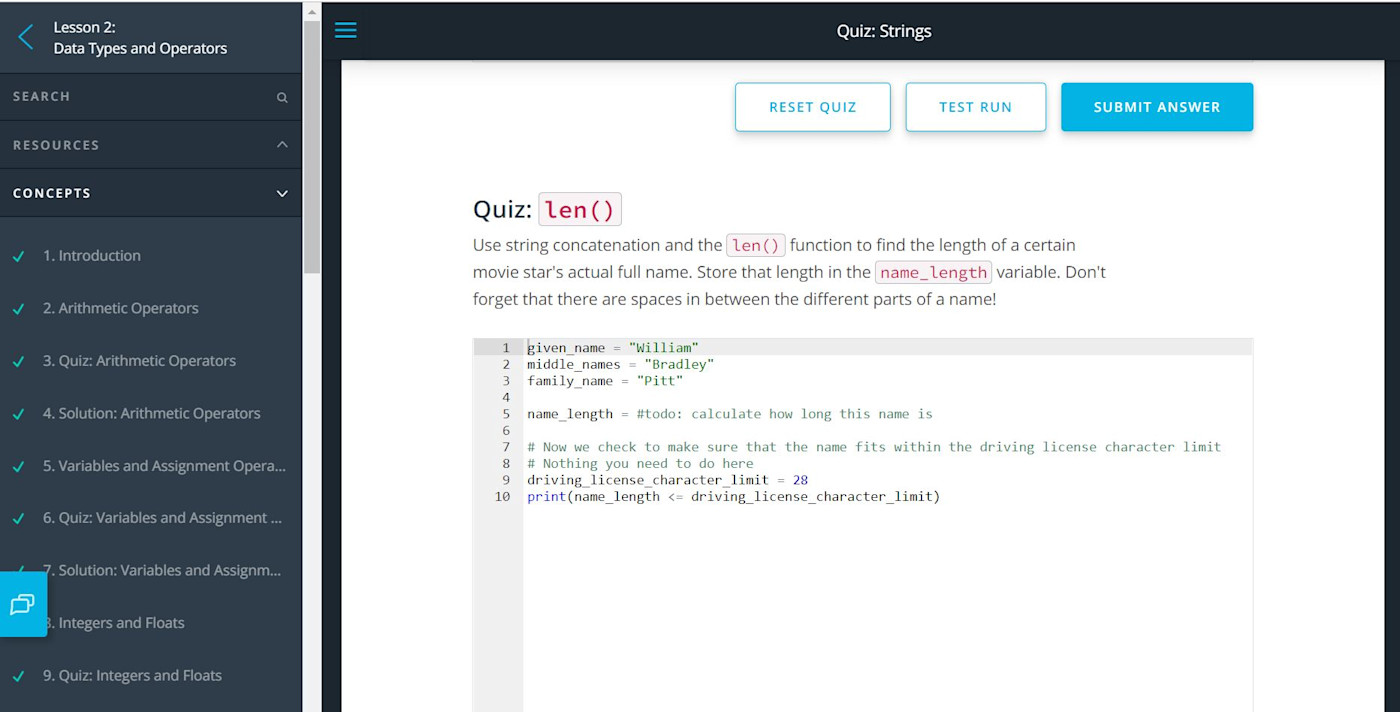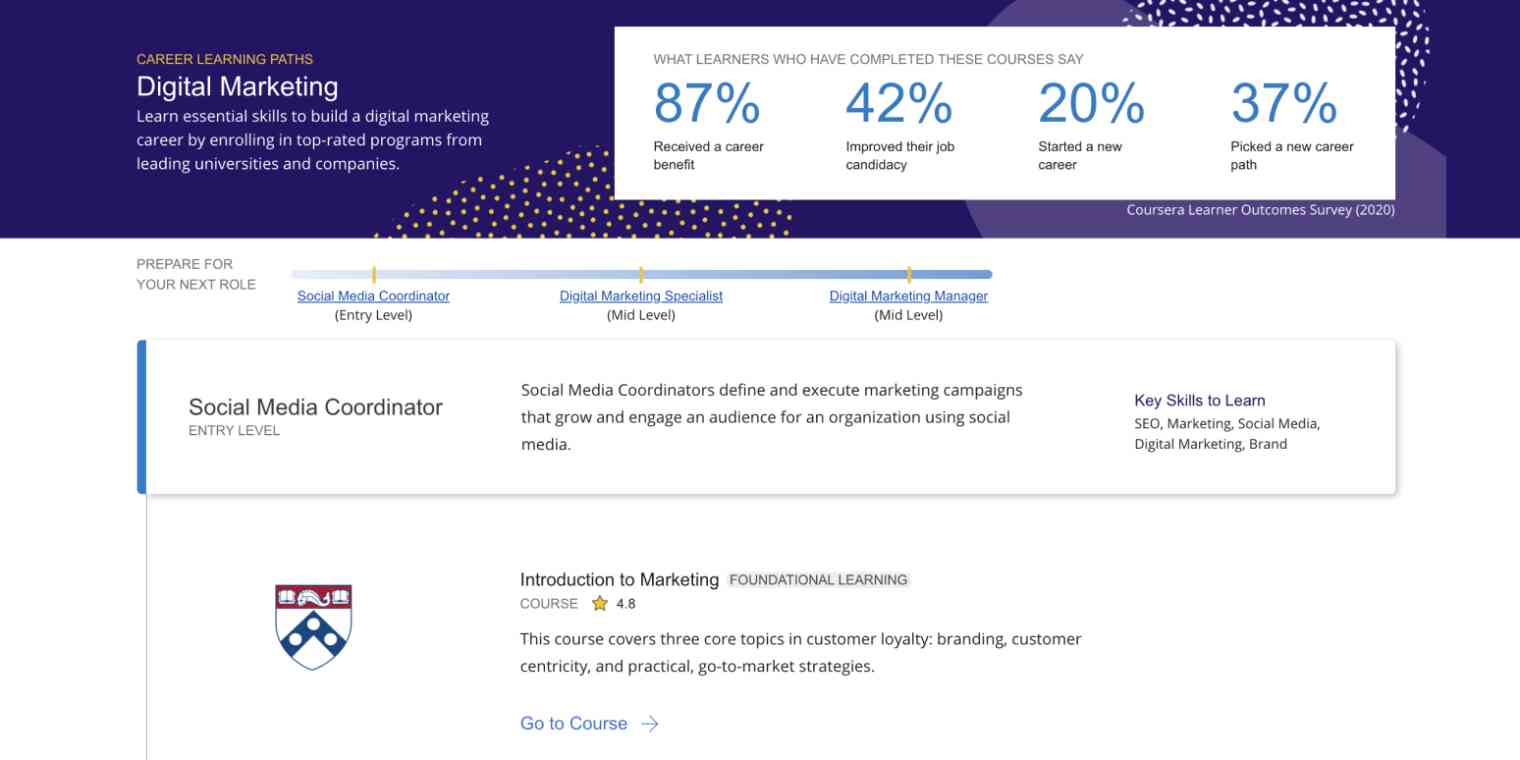Small businesses have felt the pinch of the pandemic more acutely than any other business type. Not only were most small business owners like myself the least prepared for the IT requirements of a work-from-home environment, but we've also felt the effects of low employee morale, and scarier yet, our mission-critical employees are now at risk of being poached by larger companies whose geographic hiring pool just became worldwide.
So to put an easy win on the board and give employees a little something when budget may still be tight, our company, Test Prep Insight, turned to massive open online courses—or MOOCs.
What are MOOCs?
MOOCs are usually aimed at professional skills development and are generally open to anyone who wants to take them (as the name implies). You can take courses on everything from Excel data analysis, to SEO for beginners, to how to customize your LinkedIn profile. It's a great way for employees to build skills and beef up their resume.
Despite many courses being taught by everyone from Harvard professors to Amazon Web Services executives to Caltech engineers, many of these courses are free. Of course, that doesn't mean you've got a free pass to start listing "Harvard alum" on your resume. Course providers make their money by selling accompanying certifications. (Note: many are actually nonprofits dedicated to the free flow of knowledge and thought leadership.)
So although courses are often free to audit and learn, there's almost always a fee to commemorate your learning with a professional certification (i.e., the recognition you can list on your resume). These accompanying professional certifications can range anywhere from $20 all the way up to $5,000+, depending on the course provider and desired designation.
To give you a better idea of where you can find these kinds of courses and certifications, you can browse Zapier's list of online learning platforms for quality professional development. Some course providers offer just a handful of select but very deep courses, while others provide everything under the sun, from online LSAT prep courses to classes on how to draw dinosaurs on your iPhone.
Employer benefits of providing continuing education
MOOCs are an effective and affordable way for job seekers to build their resumes and skills. For many employees, your company is likely not the last stop on their career path. Many surveys have found that employees want opportunities for career growth—and when I asked my 10 employees, 100% of them said they wanted opportunities for career growth and new skills.
But it's not just a one-sided win. If you own a small business or work in human resources for one, you shouldn't ignore the fact that an upskilled workforce provides employers benefits as well.
When a company's employees show up to work every day, do their job, and leave, there's generally little uplift in knowledge. Yes, some employees face new and unique challenges each day, but by and large—and for my small business—this isn't the case. Many employees do the same types of tasks every day. This mental stagnation provides no opportunity for innovation, efficiency gains, or growth.
Just like doctors, lawyers, and other professionals are expected to complete continuing education to maintain their licensing, your employees need upskilling and refreshers as well. Not only do 60% of employees feel that their skillset will become outdated in the next three to five years, but the World Economic Forum has confirmed as much, stating that 54% of employees will require some degree of upskilling by the end of 2022.
And these risks apply to everyone—including your small business. Prior to our company adopting a continuing education program, my employees' skills languished. I never really saw improvement in work product until we'd hire a new employee that brought new skills to the job.
A continuing education program can also combat turnover. It boosts morale, helps employees feel empowered, and assures them that they are developing skills that will help them throughout their career. We haven't lost one employee since building out our onboarding process and adding our professional skills development program—I can't recommend it enough.
How employers can leverage MOOCs
To leverage these resources, you'll first want to create a structured employee continuing education program or professional development perk—whatever you want to label it. Here are the two main options.
The "free" option
For employers looking for the absolute most affordable way to put points on the board and get their employees some high-quality training without dipping into even triple-digit expenses, you can simply give your employees the time to do so.
Give your employees 3-5 hours a month to take an online course that improves their skills—while on the clock. As the employer, this costs you just a few hours of wage time. Of course, this option lacks many of the benefits your employees may find appealing about a professional development work perk. They won't be able to get certifications without paying out of pocket, and their selection of classes will be limited by only being able to access free courses.
This option very much appealed to me as a small business owner given the price point, but I ultimately decided that I wanted to build a program that employees would value a bit more.
The more valuable option
The other alternative is to pay for a service, so your employees can get the official certificates and other recognition that comes along with MOOCs. While knowing you up-leveled your project management skills is great, if you take a 12-hour course on the topic and complete a series of assignments, you're going to want that recognition. After all, employers—especially in certain fields—want to see credentials when hiring, and employees want to be able to show off what they've done.
One option here is to rely on LinkedIn Learning, which offers thousands of bite-sized courses on everything from software tutorials like PowerPoint Essential Training to soft skills like Managing Teams. These courses are generally under two hours and are designed to provide the foundational concepts of a given topic.
Whether this will appeal to your employees will depend on the level of depth they're seeking in their training. That said, the beauty of the LinkedIn Learning model is that it's $29.99/month ($19.99/month if you pay upfront for the year) for an employee to get access to all the available courses. Depending on your employees' salaries or hourly rates, it might be comparable to giving them the time.
Another option that will give your employees more depth is to pay for them to take individual courses from providers like Coursera or Udacity. This is how I've done it, and my team has taken and earned certificates in courses including Digital Marketing, U/X Design, and Google Sheets Mastery.

You can buy individual courses with certifications for as little as $29, though some of the more in-depth courses are hundreds of dollars (or you can go the subscription route here too). If needed, you can flex this cost with the paid education hours, meaning you could offer to pay for the certification if they earn it on their own time (so you're not footing the bill for your employees to learn on the clock). That said, in my experience, workers are much more likely to actually take advantage of the professional development program if you pay for both aspects—designated education hours and the certification.
If you want to offer your employees an extra generous reward for their upskilling work, you can always offer monetary bonuses on top of the paid education hours and certification itself. Offering a small bonus—maybe in the $100-300 range—for certifications that you feel are especially valuable to your business will likely get employees really motivated. This is the cherry on top that I offered my team (a $150 bonus per certification, up to three per year), and it's worked to ensure that every employee takes advantage of the program.
MOOCs are a cost-effective and fast way of learning new skills or enhancing existing knowledge that employers, including small businesses, can leverage to their benefit. With a simple continuing education benefit plan, turning the dials on a few key features as necessary to fit your company's needs and budget, you can have a workforce that's better trained for today's business climate—and generally happier. Just ask my team: we've had 100% retention over the last 18 months since implementing our program.
This was a guest post from John Ross, CEO of Test Prep Insight. Want to see your work on the Zapier blog? Read our guidelines, and get in touch.





